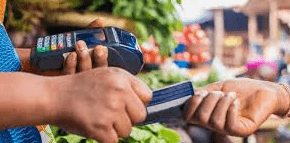Findings from a new nationwide study by the Ghana Statistical Service (GSS) and Research for Financial Inclusion and Development (ReFinD) initiative have shown that the much-touted cash-light economy is facing a slower-than-expected uptake of digital payments by businesses in the country.
Currently, only 37 percent of firms across the country accept or use digital payment platforms shows the report which forms part of the 2024 Integrated Business Establishment Survey (IBES).
Adoption is particularly low in the agricultural sector, where firms are least likely to use such services.
The data underscore digital finance’s transformative potential for business growth and financial inclusion, but uptake remains heavily concentrated in Greater Accra and a few regional capitals.
The knowledge gap, fears of fraud and uncertainty over financial returns continue to limit broader adoption, especially among smaller enterprises.
Professor Peter Quartey, Director-Institute for Statistical Social and Economic Research (ISSER), observed during the report’s launch that constraints like taxation – particularly the e-levy – and security concerns continue to hold back adoption.
However, the study finds that most firms using digital platforms still rely on personal mobile money accounts – which are costlier and less efficient for business transactions.
Larger companies tend to diversify their usage, leveraging merchant accounts that are more aligned with business needs and help drive revenue growth.
Despite the strong performance of female managers in boosting revenue and their adoption of merchant accounts, women-owned businesses often struggle with limited access to capital – one of the key barriers to greater adoption.
Prof. Quartey added that most women lack the capital to own or expand businesses… and that limits their ability to invest in digital finance.
An assistant professor of economics at the University of California, Berkeley, also described the results as “striking” since nearly 95 percent of individuals surveyed have used digital payments as consumers, but only about 37 percent of businesses reported doing the same.
“This large gap tells us a lot about selection issues in the market,” Mr. Annan said. “Firms face barriers like lack of understanding and concerns about security.”
Addressing these barriers will not only expand access to finance but also strengthen firm-level productivity and, by extension, the national economy.










